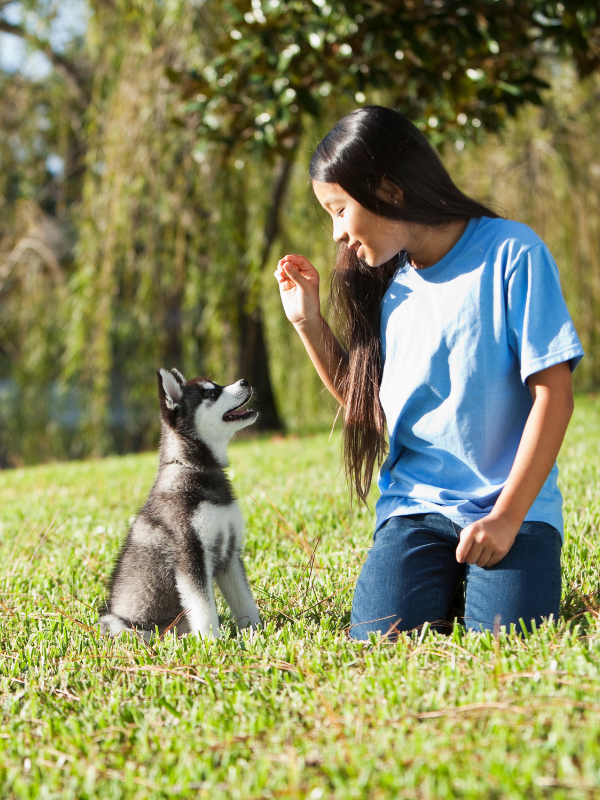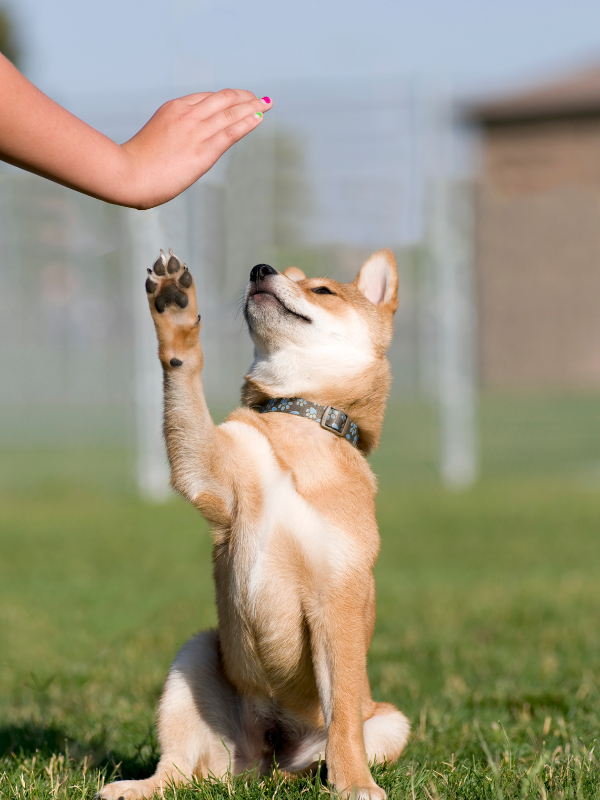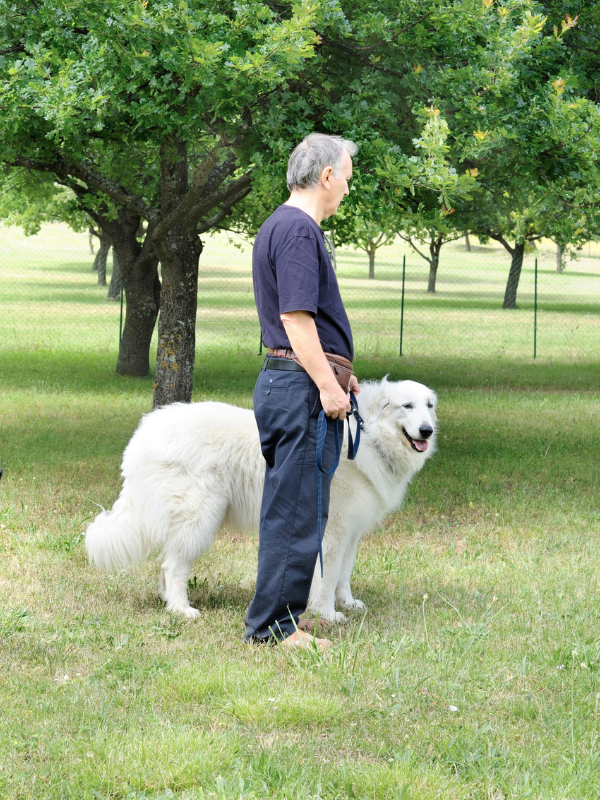737-215-3211

The Benefits of Puppy Training Classes and How to Choose the Right One
Puppies are adorable creatures that bring joy and happiness into our lives. However, they also require proper guidance and training to become well-behaved, sociable, and obedient adult dogs. Puppy training classes provide an excellent opportunity to shape your furry friend's behavior and instill essential skills. In this article, we will explore the benefits of puppy training classes and provide guidance on how to choose the right one for your canine companion.
The Importance of Puppy Training Classes
Building a Strong Foundation
Building a strong foundation is crucial when it comes to training your puppy. Just like with any skill, it's important to start with the basics. Puppy training classes lay the groundwork for a well-behaved and obedient dog.
In these classes, your puppy will learn essential commands such as sit, stay, and come. These commands form the building blocks of their training journey. By mastering these basics, your puppy will have a solid understanding of how to respond to your cues effectively.
The early stages of training are like laying the groundwork for a house. Without a strong foundation, the structure is shaky and unstable. Similarly, without proper training and a strong foundation, your puppy's behavior may become unruly and unpredictable.
Through puppy training classes, you provide your furry friend with the essential tools they need to thrive. These classes create a structured learning environment where your puppy can develop good manners, learn appropriate behaviors, and establish a strong bond with you as their owner.
By investing time and effort into building a strong foundation through training, you are setting your puppy up for a lifetime of positive behaviors and a healthy relationship with you and those around them.
Assessing the Training Methods Used
Different trainers may use different training methods and techniques. It's essential to understand the approach used in a particular class and determine if it aligns with your training philosophy and goals. Positive reinforcement methods, which involve rewarding desired behaviors, are generally recommended as they create a positive learning environment for your puppy.
Factors to Consider in Puppy Training Classes
Class Size and Duration
Consider the size of the class and the duration of each session. Smaller classes often allow for more individual attention from the trainer, ensuring that your puppy's specific needs are met. Additionally, shorter sessions with frequent breaks are ideal for puppies, as they have shorter attention spans and may become overwhelmed with prolonged training sessions.
Training Environment
The training environment should be safe, clean, and conducive to learning. A well-maintained facility with appropriate training equipment and designated areas for different activities is essential. Pay attention to the overall atmosphere and ensure that it promotes a positive and stress-free learning experience for your puppy.
Training Techniques and Approach
Evaluate the training techniques and approach employed by the trainer. Look for classes that focus on positive reinforcement, where rewards such as treats, praise, and play are used to reinforce desired behaviors. Avoid classes that rely on punishment-based methods, as they can have negative long-term effects on your puppy's well-being and trust.
Training Curriculum
Review the training curriculum to ensure that it covers essential obedience commands, socialization skills, and behavior modification techniques. A well-rounded curriculum should also address common puppy issues like house training, leash walking, and handling.
Trainer-Student Interaction
Observe how the trainer interacts with both puppies and owners. A skilled trainer should be patient, compassionate, and able to effectively communicate instructions and feedback. They should be approachable and willing to address any concerns or questions you may have during the class.
Making the Most of Puppy Training Classes
Enrolling your puppy in a training class is just the first step. To maximize the benefits, consider the following:
Consistency and Practice
Consistency is key in training your puppy. Practice the learned commands and techniques regularly outside of class to reinforce their training. Short, frequent training sessions at home will help your puppy retain what they have learned and improve their overall progress.
Positive Reinforcement
Continue using positive reinforcement techniques at home. Reward your puppy with treats, praise, and affection when they exhibit desired behaviors. This positive feedback encourages them to repeat those behaviors in the future.
Setting Realistic Expectations
Remember that training takes time and patience. Set realistic expectations for your puppy's progress, understanding that each puppy learns at their own pace. Celebrate small victories and be patient with setbacks.
Being an Active Participant
Engage actively in the training process by following the trainer's instructions, asking questions, and seeking guidance when needed. Take an active role in your puppy's education, as your involvement significantly influences their success.
Enrolling your puppy in a training class is a valuable investment in their future. These classes provide a structured environment for learning, socialization, and behavior modification. By choosing the right class and actively participating in the training process, you can ensure that your puppy develops into a well-behaved and well-adjusted adult dog.
FAQs
How long does it take to train a puppy?
The time it takes to train a puppy varies depending on various factors such as breed, age, and individual temperament. Generally, basic obedience training can take a few weeks to a few months. However, training is an ongoing process, and consistent reinforcement and practice are necessary to maintain and reinforce learned behaviors throughout your puppy's life.
Can older dogs benefit from training classes?
Yes, older dogs can absolutely benefit from training classes. Dogs of any age can learn new behaviors and improve their obedience skills. Training classes provide an opportunity for older dogs to socialize, address any behavior issues, and strengthen the bond between the dog and owner.
What if my puppy is too shy or aggressive?
If your puppy is shy or aggressive, it's even more important to enroll them in a training class. A professional trainer can assess their behavior and provide guidance on how to address and manage these issues. Training classes can help build confidence in shy puppies and teach appropriate behavior and impulse control to aggressive ones.
Are there online puppy training classes available?
Yes, there are online puppy training classes available. Online classes offer convenience and flexibility, allowing you to train your puppy from the comfort of your own home. However, it's important to ensure that the online class provides interactive elements, such as live video sessions or personalized feedback, to ensure effective learning.
What are the typical costs associated with puppy training classes?
The costs associated with puppy training classes can vary depending on the location, duration, and quality of the class. On average, group training classes may range from $100 to $300 for a multi-week session. Private training sessions tend to be more expensive, with rates ranging from $50 to $150 per hour. It's essential to consider the value and expertise of the trainer when evaluating the cost of a training class.
Where can I get access to puppy training classes?
To find puppy training classes, you can start by contacting local pet training facilities, veterinary clinics, or dog breeders. Online directories and platforms dedicated to pet services may also provide listings of available training classes in your area. Additionally, you can seek recommendations from other dog owners or consult with your veterinarian for guidance on reputable training programs.





Leave a comment